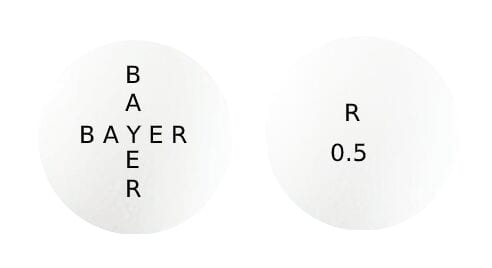Uses
Riociguat is used to treat pulmonary arterial hypertension (PAH; high blood pressure in the vessels that carry blood to the lungs). Riociguat is also used to treat chronic thromboembolic pulmonary hypertension (CTEPH; high blood pressure in the lung arteries caused by blood clots that narrow or block blood flow) in adults who cannot have surgery or for those treated with surgery who continue to have high lung blood pressure levels after surgery. Riociguat may improve the ability to exercise in people with PAH and CTEPH and may slow the worsening of symptoms in people with PAH. Riociguat is in a class of medications called soluble guanylate cyclase (sGC) stimulators. It works by relaxing the blood vessels in the lungs to allow blood to flow easily.
Side Effects Of Riociguat
Riociguat may cause side effects. Tell your doctor if any of these symptoms are severe or do not go away:
- headache
- constipation
- heartburn
- upset stomach
- nausea
- vomiting
- diarrhea
- swelling of your hands, legs, feet, and ankles
Some side effects can be serious. If you experience any of these symptoms or those in the SPECIAL PRECAUTIONS section, call your doctor immediately or get emergency medical treatment:
- coughing up pink, frothy sputum, or blood
- fainting
- chest pain
- shortness of breath
Riociguat may cause other side effects. Call your doctor if you have any unusual problems while taking this medication.
Warnings & Precautions
Before taking riociguat:
- tell your doctor and pharmacist if you are allergic to riociguat, any other medications, or any of the ingredients in riociguat tablets. Ask your pharmacist or check the Medication Guide for a list of the ingredients.
- tell your doctor if you are taking or have recently taken a nitrate such as isosorbide dinitrate (Isordil, in BiDil), isosorbide mononitrate (Monoket), or nitroglycerin (Nitro-Dur, Nitromist, Nitrostat, Minitran, Rectiv, others),; phosphodiesterase inhibitors (PDE-5) such as avanafil (Stendra), sildenafil (Revatio, Viagra), tadalafil (Adcirca, Cialis), or vardenafil (Levitra, Staxyn); or if you are taking dipyridamole (Persantine, in Aggrenox), or theophylline (Theo-24, Theochron, Theolair, others). Your doctor will probably tell you not to take riociguat if you are taking one or more of these medications. Do not take riociguat within 24 hours before or after taking sildenafil or within 24 hours before or 48 hours after taking tadalafil.
- tell your doctor and pharmacist what other prescription and nonprescription medications, vitamins, nutritional supplements, and herbal products you are taking or plan to take. Be sure to mention any of the following: certain antifungals such as itraconazole (Onmel, Sporanox) and ketoconazole (Extina, Nizoral, Xolegel); HIV protease inhibitors including ritonavir (Norvir, in Kaletra); certain medications for seizures such as carbamazepine (Epitol, Equetro, Tegretol, others), phenobarbital, and phenytoin (Dilantin, Phenytek); and medications for high blood pressure. Your doctor may need to change the doses of your medications or monitor you carefully for side effects.
- if you are taking antacids containing aluminum hydroxide or magnesium hydroxide (Maalox, Mylanta, Tums, others), take them 1 hour before or 1 hour after taking riociguat.
- tell your doctor what herbal products you are taking, especially St. John’s wort.
- tell your doctor if you have pulmonary hypertension with idiopathic interstitial pneumonia (PH-IIP; lung disease). Your doctor will probably tell you not to take riociguat.
- tell your doctor if you currently smoke or start or stop smoking during treatment. Also tell your doctor if you have recently had diarrhea, vomiting, or sweating a lot which may have caused dehydration (loss of a large amount of body fluids); any bleeding from your lung(s); if you have had a procedure to stop you from coughing up blood; if you have low blood pressure, pulmonary veno-occlusive disease (a blockage of veins in the lungs); or heart, kidney, or liver disease.
- tell your doctor if you are breastfeeding. Do not breastfeed while you are taking riociguat.
- you should know that riociguat can cause dizziness and lightheadedness. Do not drive a car or operate machinery until you know how this medication affects you.
Dosage Of Riociguat
Riociguat comes as a tablet to take by mouth. It is usually taken with or without food 3 times a day. Take riociguat at around the same time(s) every day and space your doses about 6 to 8 hours apart. Follow the directions on your prescription label carefully, and ask your doctor or pharmacist to explain any part you do not understand. Take riociguat exactly as directed. Do not take more or less of it or take it more often than prescribed by your doctor.
If you cannot swallow the tablet whole, you can crush the tablet and mix the contents with a small amount of water or a soft food such as applesauce. Swallow the mixture right after you mix it.
Your doctor may start you on a low dose of riociguat and gradually increase your dose, not more than once every 2 weeks. Your doctor may decrease your dose if you experience side effects.
Other
Keep all appointments with your doctor. Your doctor will check your blood pressure regularly during your treatment with riociguat.
Do not let anyone else take your medication.
It is important for you to keep a written list of all of the prescription and nonprescription (over-the-counter) medicines you are taking, as well as any products such as vitamins, minerals, or other dietary supplements. You should bring this list with you each time you visit a doctor or if you are admitted to a hospital. It is also important information to carry with you in case of emergencies.
Source
All information has been provided courtesy of MedLinePlus from the National Library of Medicine and from the FDA.



